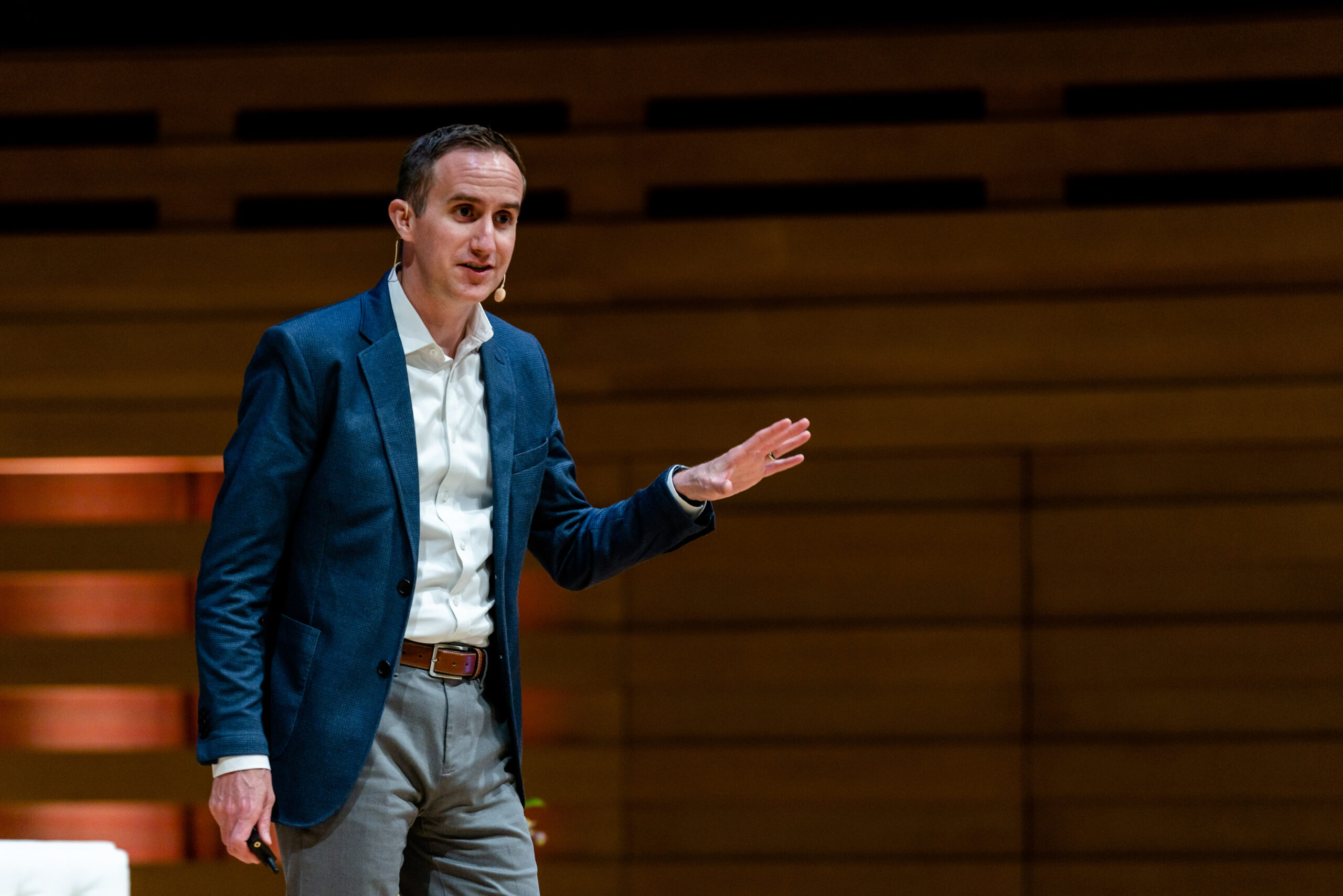
“Investing is not the study of finance, it’s the study of how people behave with money.”
How many finance books are optioned to become feature films? Not many, but The Psychology of Money by Morgan Housel a partner at venture capital firm The Collaborative Fund is the latest. Housel’s first book explores how psychology drives many financial decisions and behaviors. His second book, Same as Ever: A Guide to What Never Changes will be out in November. Housel was the guest speaker at The Burgundy Forum Annual Client Day in Toronto in May. Here are some highlights from his talk:
In 2008, in his early years as a writer, Housel saw what was happening around him—the housing bubble in the U.S. and its subsequent collapse which triggered the Great Financial Crisis—and realized he couldn’t make sense of it simply by looking at it through the lens of finance and economics. He concluded that these events could only be understood within the context of psychology, sociology, history, and biology.
“Greed and fear are psychology; keeping up with the Joneses is sociology.” This led Housel to conclude: “Investing is not the study of finance; it’s the study of how people behave with money.” To fully understand what is happening in the economy and what could happen, it is necessary to think about finance through a broader lens to get closer to the truth.
How can we make better decisions: Who won the Boat Race of 1968?
Housel told the story of the famous yacht race of 1968. That year, The Sunday Times hosted a boat race to drum up press. The first person to sail solo around the world would win 5,000 pounds. 12 sailors entered the race; 1 finished.
Donald Crowhurst, a British businessman and amateur sailor. He saw the boat race as his last shot at redemption where he could accomplish something big. He was a terrible sailor. The boat he built made it as far as the coast of Africa before it sprung a leak. He knew that if he continued, he would not make it. But he could not face turning around and failing again. Instead, he chose to sail into the middle of the Atlantic and drift in circles for six months all the while sending fake radio communications back home. His plan was to kill enough time so it would be plausible that he had sailed around the world before heading back to England to claim his prize. At some point he realized that under the intense media scrutiny and people digging into his fake logbooks, his ruse would fail. Becoming ill from isolation, in his last diary entry he wrote he had no need to prolong the game. He wrote: “It is finished,” three times and shut off his radio. He was never seen again.
Bernard Moitessier also entered the race. After six months he was on track to win. He loved being at sea and the commercialization of the sport and the anticipation of parades and media attention upset him. “I feel sick about getting back to Europe and the snake pit,” he wrote in his diary. He flags down a fishing vessel and slingshots a note to the boat to pass along to the newspaper editor: “I’m continuing on to the Pacific Islands.” Moitessier lands in Tahiti, builds a house on the beach, grows his own food, marries a local woman and lives happily ever after.
The takeaway:
- Crowhurst lived his life for the approval of other people.
- Moitessier’s goal was to make himself happy.
“Are you making money for the attention and applause of other people? Is your scorecard based on external or internal rankings? So many people live a life closer to Crowhurst’s,” said Housel.
“I had dinner with a financial advisor,” he continued. “He shows his client the fund’s performance relative to the S&P 500. The client says, ‘Stop, do I have enough money to travel to Europe next year? That is my only benchmark.’
“I think that’s a great philosophy. Are you using your money to get the attention of other people or for yourself?”



